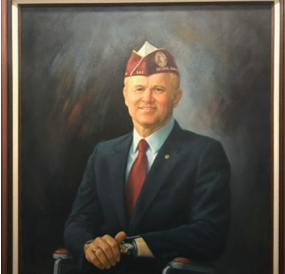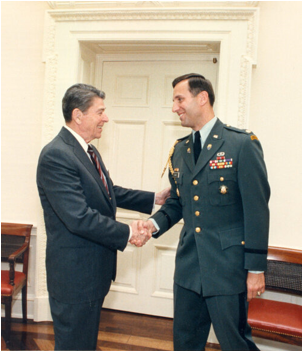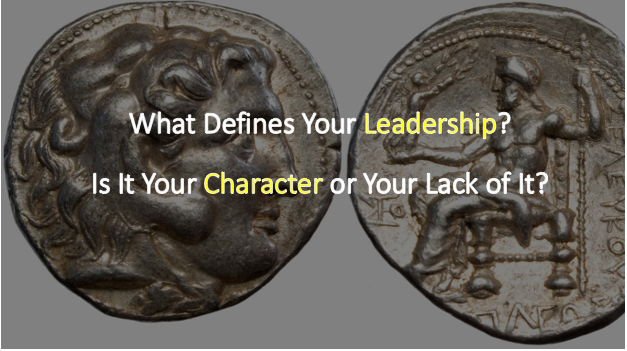by Jim Solomon and Bruce LaRue, Ph.D.
“Leadership is much less of what you do and much more of who you are.”
– Frances Hesselbein
Character Defined
Is “character” a term of the past? With its rise in the 18th and 19th century, has society now turned its attention to personality or competency? Integrator Leaders, a term coined by Chambers Bay Institute, are leaders of character. They are relevant today as we move into the Age of Artificial Intelligence, and beyond.
The word character is derived from the Greek word charakter, which was the permanent mark placed on a coin that determined the coin’s worth. Similarly, a person’s character is “marked” by the set of beliefs and values which serve as guideposts for how that person behaves, decides, and acts – in any setting, at home, work, social, or on-line. 1
Character – The Foundation of Leadership
Kyler Briscoe writes that “Character is the foundation of successful leadership… …Character is the aggregate of a person’s ethical and moral qualities, and it is demonstrated through the choices we make. It’s our ethics and morals that’s seen through our actions which are all rooted in our values and belief systems. Nothing showcases character like decisions. Especially decisions made whenever there is pressure. Pressure will reveal your character!”
James C. Hunter reminds us that our character development probably began when we were taught the Golden Rule – treat others the way you want to be treated. Could this be the root of the problem today? Are our children still being taught the Golden Rule or is today’s emphasis on competency?
When one says, be the boss you always want or be the parent you wish you had or be the friend or neighbor or colleague that you want – maybe this is a tougher question than we think on the surface.
Hunter suggests that “Just as leadership is an on-going developmental and maturity process, so is character. In fact, they both go together when addressing leader development.“ According to Hunter, “Leadership has little to do with your style (personality) and everything to do with your substance (character). So, character can’t be separated from addressing leadership.”
Leadership Traits
“Great leadership begins first with character – leadership is primarily a function of who you are, for this is the foundation for everything you do. How do you build leaders? You first build character” explains Jim Collins in his forward to the 25th anniversary republication of The 7 Habits of Highly Successful People.
Revered as one of the top ten thought leaders in business, Warren G. Bennis, says that “Successful leadership is not about being tough or soft, assertive or sensitive. It’s about having a particular set of attributes – which all leaders, male and female, seem to share. And chief among these attributes is character.”
Base your judgement of people “on the content of their character”, urged the late Dr Martin Luther King, Jr. He understood the importance of one’s character and how, when used to set the azimuth for an individual, an organization, a community, or a nation, it could positively influence outcomes to best serve the greater good.
A powerful, yet simple message instilled by Coach John Wooden to each of his players, contributing to the success of his winning teams was to “be more concerned with your character than your reputation, because your character is what you really are, while your reputation is merely what others think you are.”
Leaders Defined by Their Character
Character traits of the best leaders are “marked” by the set of beliefs and values which serve as their guide for their behaviors, decisions, and actions. Selected below are three leaders who are clearly defined by their character.
- Reflect on their stories and then on yours.
- How will your story be written one day?
- Is your leadership defined by your character or your lack of it?
Paula Kluczynski

Paula Kluczynski epitomizes a leader of character. Her values, passion and innovation earned her a deserving legendary reputation and a place in the Defense Logistics Agency’s Hall of Fame. This enormous Department of Defense organization is where Paula’s character opened doors to allow her to impact thousands of leaders for almost two-decades and continues to impact thousands more each year.
In 2004, Paula was instrumental in creating, then deploying the New Supervisor Certificate Program to help transform Defense Logistics Agency (DLA) employees into leaders. Her program addressed the competency gaps to develop and prepare DLA leaders for the 21st century.
At the time this was the only certificate program available in the Department of Defense to offer a two-year systematic program to enhance leadership skills.
This phenomenally successful program assisted with the transition of newly appointed DLA supervisors into leadership positions within the agency. Directly attributed to Ms. Kluczynski’s leadership, this program became and is still recognized as an industry best practice across both public and private sectors. It was Paula’s true understanding of leadership, her dedication to her organization and its customers, and identifying a significant need and not giving up until a solution was in place, that allowed her to make a generational change impact.
As powerful a story that this is, the real story is about Paula and her character.
During her 35-year career, she was recognized for her superb service, and specifically her focus on service to the Warfighter. A federal government civilian, not in the military, she maintained the highest degree of loyalty and professionalism, setting a positive example of achievement that has been inspirational to coworkers, subordinates, and industry partners alike.
It was how she approached her work that has had the lasting impact. Authentic, inclusive, and trusted. Her word was her bond. She felt accountable to those she led and held her subordinates accountable to those they served.
She approached her work in a fierce and determined manner, but always found the time to truly know her team and to work with others … in a patient and kind style.
As an instructor of leadership and ethics, Paula “walked the walk” daily as a living example in the classroom and out. Paula’s character defined her and now more than nine years after her passing, her character lives on.
Ralph Chad Colley, Jr.

“People look at me and they say I couldn’t do that. Apprehension is a great deterrent…” As an Infantry Company Commander, 3/187th Infantry, 101st Airborne Division, in 1968 in Vietnam, he stepped on a mine that exploded under his feet, causing Ralph Chad Colley to lose both legs and an arm. His initial thoughts were: “I want to die. I’ve been married six weeks and I have a bride waiting for me. And the idea of going back like that just seemed overwhelming. Then my third reaction was… no… I want to live. And I want to live so badly that right now whatever it takes, I’m down with it. I can do this…” Upon his release from the military, Colley held the rank of captain and had earned the Silver Star, Bronze Star, Purple Heart, and the Combat Infantry Badge. Chad often shared that “life is so rewarding don’t let the anchor of what happened drag you down for the rest of your life.”
With this, Ralph Chad Colley changed the world. He changed how the world looked and treated those with disabilities. He changed how those with disabilities faced the world. Chad gave hope and inspired those with significant challenges. With his strong values, he led with an intense sense of purpose, not for him, but for others.
Take a minute to watch Chad in his short powerful video and hear his inspirational story about life and leadership that clearly shows his character: https://moments.org/watch/chad-colley/
Chad’s relentless determination made him successful throughout his life as a veteran of the Vietnam War, pilot (first triple amputee to earn his license), businessman, advocate for disabled Americans, and avid skier.
In the 1980s, Colley was nationally recognized for his work with veterans’ causes and for making public facilities accessible to disabled Americans.
In 1992, he won two gold medals at the Paralympics in Albertville, France, in the downhill and slalom events. Chad was recognized by Ronald Reagan for his efforts on behalf of Americans with disabilities. President George H. W. Bush appointed him Vice Chairman of the President’s Committee on Employment of People with Disabilities and he served as National Commander of the Disabled American Veterans association.
By 2003, Colley had retired, but continued to serve on the National Council on Disability and the Disabled Veterans and the DAV’s Committee for the National Disabled Veterans Winter Sports Clinic.
Chad Colley continues to inspire thousands, even after his death, through his story of hope. He demonstrated, through his example, how to live life with strong purpose and character. His values, based on his faith, never wavered. He was a servant leader turning his disability into an asset, inspiring others to live a life of purpose and dignity even in the face of great adversity.
Ronald Reagan
 This photograph of President Ronald Reagan is representative of the man he was and provides a glimpse into his character. Reagan’s leadership traits could be defined as authentic, courage, and caring. He was known to take time to focus on others, to treat all with dignity and respect, and to model the behavior he expected in others. He felt accountable to those he led and those he served, he held others accountable, and took a firm stand on the moral high ground.
This photograph of President Ronald Reagan is representative of the man he was and provides a glimpse into his character. Reagan’s leadership traits could be defined as authentic, courage, and caring. He was known to take time to focus on others, to treat all with dignity and respect, and to model the behavior he expected in others. He felt accountable to those he led and those he served, he held others accountable, and took a firm stand on the moral high ground.
This photograph shows President Reagan shaking the hand of his military aide, Army Major Bob Ivany (now Major General, Retired, and President Emeritus, University of St. Thomas).
Reagan’s approach to leadership was to lead with character. This remained his azimuth – having a strong moral courage, doing what was right, often having to deter from what was the popular approach. This is simply defined as courage; something that seemed natural to him. This, coupled with his spirit of optimism, inspired others and gave them the hope that they needed. His courage drove his policy decisions, his global peace achievements, and his respect of the American people who he was elected to lead.
His easy-going outward appearance didn’t mean he was one without a temper or who wasn’t a fierce competitor. His drive for excellence fueled these behaviors, but his character caused these to be hidden from public view. As a leader, he knew what he wanted and took a ruthless approach to achieve his successes.
In his May 1993 speech to the cadets of The Citadel, Reagan shared the essence of one’s character:
“The character that takes command in moments of crucial choices has already been determined. It has been determined by a thousand other choices made earlier in seemingly unimportant moments. It has been determined by all the little choices of years past…by all those times when the voice of conscience was at war with the voice of temptation…whispering the lie that it really doesn’t matter. It has been determined by all the day-to-day decisions made when life seemed easy and crises seemed far away…the decisions that, piece by piece, bit by bit, developed habits of discipline or of laziness, habits of self-sacrifice or of self-indulgence, habits of duty and honor and integrity-or dishonor and shame.”
Through his meaningful words to these emerging leaders, Reagan underscored how seemingly unimportant decisions can become the building blocks of one’s character.
Great leaders surround themselves with those with strong character. As the military aide for President Reagan, Bob Ivany had the responsibility of carrying the “football”, the briefcase with the classified codes to launch nuclear war. He described this responsibility as a humbling experience, and that it further defined his character.
During this two-year period, he was up close and personal with the world’s most powerful leader. What he observed and learned about character from the President, he carried forward. Today, this humble leader, Dr. Bob Ivany, assists others to learn how one’s leadership, just like Ronald Reagan’s, must rest on character.
Great Leadership Books That Address Character
The Servant – A Simple Story About The Essence of Leadership by James C. Hunter
The 7 Habits of Highly Effective People by Stephen R. Covey
Good to Great by Jim Collins
The Character Gap: How Good Are We? by Christian B. Miller
Boundaries for Leaders by Dr. Henry Cloud
1. This discussion about the root of the word character can be found in many sources – this is but one source. Murphy, Madonna M. Character Education in America’s Blue Ribbon Schools: Best Practices for Meeting the Challenge. (Lancaster: Technomic Publishing Company, 1998),


You must be logged in to post a comment.